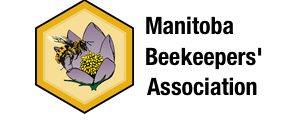BACKGROUND
Neonicotinoids is a class of systemic pesticides that have been linked recently to pollinator decline primarily in Ontario and Quebec. This
insecticide can be applied in various ways such as a seed coating (i.e. on corn, canola, soybean, winter wheat, etc), as a foliar spray and as a soil
drench or granules. Systemic pesticides are absorbed into plant tissues and are able to migrate through the entire plant. The pesticide affects the insects’ central nervous system resulting in paralysis and death. The following are examples of insecticides found in the Chloronicotinyl insectides (a.k.a. Neonicotinoid): Acetamiprid, Clothianidin, Imidacloprid, Thiacloprid and Thiamethoxam.
Recently, Health Canada’s Pest Management Regulatory Agency (PMRA) published Notice of Intent NO12013-01: Action to Protect Bees from Exposure to Neonicotinoid Pesticides wherein PMRA “concluded that current agricultural practices related to the use of neonicotinoid treated corn and soybean seed are not sustainable” and proposed that “for the 2014 planting season, we (CFIA) intend to implement additional protective measures for corn and soybean production, including”:
- Requiring the use of safer dust-reducing seed flow lubricants;
- Requiring adherence to safer seed planting practices;
- Requiring new pesticide and seed package labels with enhanced warnings; and,
- Requiring updated value information be provided to support the continued need for
neonicotinoid treatment on up to 100% of the corn seed and 50% of the soybean seed.”
PMRA is currently conducting a re-evaluation of all uses of neonicotinoid insecticides in cooperation with the United States Environmental Protection Agency (US EPA) to better understand and manage potential risks these pesticides may pose to long-term bee health. PMRA is also proposes to implement label improvements similar to those announced by the US EPA on 15 August 2013.
Public consultation of PMRA’s Notice of Intent was open for comment till December 12, 2013. The comments and suggestions received during the public consultation period will be considered prior to PMRA producing the final report, which will detail what corrective actions will be taken to protect bees from exposure to neonicotinoid insecticides. Below are the comments submitted by the MBA Board of Directors.
….. MBA NEONICOTINOID POSITION Letter……….
Pest Management Regulatory Agency
2720 Riverside Drive A.L.6604-E2 Ottawa, ON K1A 0K9
E-mail: pmra.publications@nullhc-sc.gc.ca:
This letter confirms the support of the Manitoba Beekeepers’ Association (MBA) for the December 12, 2013 Canadian Honey Council’s Submission to Health Canada’s call for comments on notice of intent NO12013-01.
MBA is a province-wide association representing about 550 Manitoba beekeepers, with over 80,000 colonies of honey bees. MBA has a long history of working collaboratively with various groups, and to this end feels it is imperative to find a resolution for the neonicotinoid issue beneficial to both seed growers and pollinator providers. We recognize seed growers could face difficulties if seed suppliers are reluctant to reduce current treatment regimes. We therefore encourage co-operation of industry, beekeepers and government to develop a sustainable solution. MBA recognizes the importance of the regulatory agency to take quick action to mitigate the ongoing impacts widespread prophylactic neonicotinoid use has on bees. We therefore encourage Pest Management Regulatory Agency to work with various industry groups to develop a process to quickly reduce neonicotinoid dependency.
Should you require additional information on this letter of support, please feel free to contact our association at your convenience.
Reference:
